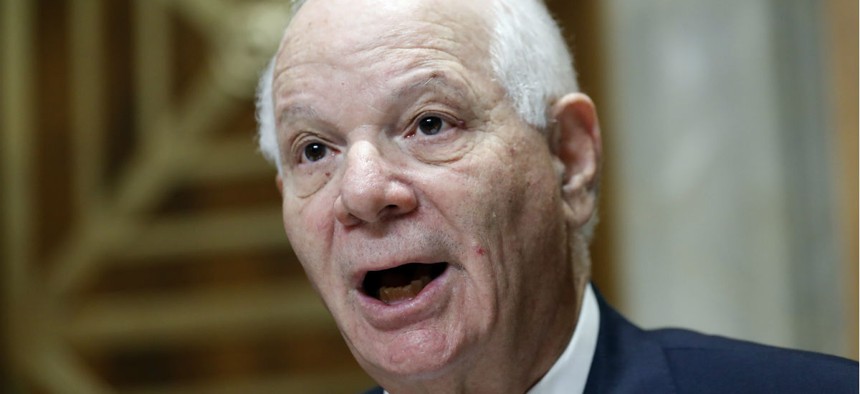Defense Bill Compromise Includes a Bigger 2018 Pay Raise for Military Members
Democrats vow a fight for civilian pay parity.
Leaders in the House and Senate on Wednesday announced that they had reached an agreement on a $700 billion defense authorization bill for fiscal 2018, which includes a 2.4 percent across-the-board pay raise for military personnel.
Senate Armed Services Committee Chairman John McCain, R-Ariz., and ranking member Jack Reed, D-R.I., released the details of the deal on the committee’s website. The pay raise figure matches one floated by members of Congress as early as July and comes in higher than President Trump’s proposed 2.1 percent increase for service members as outlined in his fiscal 2018 budget proposal.
That figure could put additional pressure on D.C.-area lawmakers, who have long advocated for pay parity between the federal government’s civilian and military workforces. Trump proposed a 1.9 percent pay raise for civilian employees, and there is no indication that Congress plans to deviate from that number.
Sen. Ben Cardin, D-Md., said in a statement that while he is in favor of the larger pay increase for military personnel, the rest of the federal workforce should be afforded the same boost.
“Our federal workforce is a critical national asset we should not take for granted,” he said. “While I support the biggest pay increase possible for our military members, with very few exceptions, we have had parity with respect to pay raises for the military and for civilian federal employees. I would like to see us return to that standard.”
And Rep. Gerry Connolly, D-Va., in a statement highlighted legislation he introduced in January to institute a 3.2 percent pay increase for military and civilian employees, and said he would continue to support pay parity measures.
"Federal employees work hard, serve honorably, and deserve fair compensation,” Connolly said. “That is why I introduced the Federal Adjustment of Income Rates (FAIR) Act at the beginning of this year. I welcome efforts to raise the pay of members of our military through the National Defense Authorization Act. I urge the president to take administrative steps within his authority to similarly increase pay for civilian employees.”
The House and Senate are both expected to vote on the 2018 National Defense Authorization Act sometime this month. Lawmakers are getting closer to a Dec. 8 deadline to approve a long-term appropriations package to keep the federal government open, although that effort is complicated by demands from Democrats to codify protections for undocumented immigrants who arrived as children, as well as a renewed demand from the White House for additional funding for Trump’s proposed Southern border wall.
In December 2016, President Obama unilaterally boosted federal civilian employees’ 2017 pay increase from 1.6 percent to 2.1 percent, matching the raise approved for uniformed military service members. Trump has not signaled whether he would similarly override Congress.




